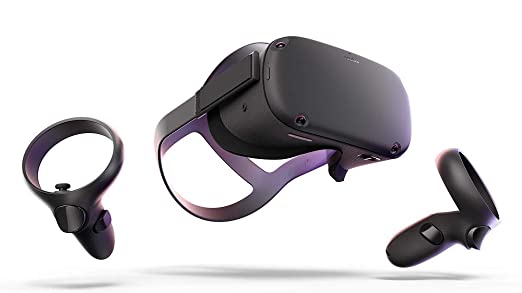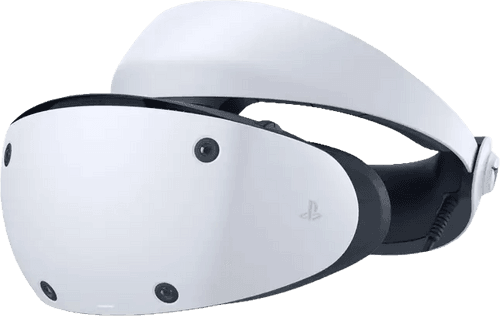Oculus Quest vs PlayStation VR2
When you compare the Oculus Quest to the PlayStation VR2 you can see which VR Headset is better. Let's take a look of the comparison, and see which model of VR Headset out ontop.
 Oculus Quest
Oculus Quest4.5
Based on 1 reviews
What VR Headset is better?
After using both the Oculus Quest and PlayStation VR2 virtual reality headsets, I can confidently say that they are both high-quality products. Both offer a wide field of view, room scale tracking, and high resolutions, with the PlayStation VR2 being slightly superior in some specs.
Starting with the Oculus Quest, this headset is a standalone device that requires no connection to an external source. It has a 95° field of view and 1600x1440px resolution. The refresh rate is 72 Hz which is not as fast as its competitor but still provides smooth visuals without motion blur or lag. It also has 360 tracking to create an immersive experience. The major downside of this headset is its lack of operating system – it only works with Microsoft Windows.
The PlayStation VR2 offers several advantages over the Oculus Quest such as its 110° field of view and 2000x2040px resolution which make for an even more immersive experience than the Oculus Quest can provide alone. The refresh rate on this device is 120 Hz which creates smoother visuals than the competition and avoids lag or motion blur issues often associated with lower rates. It’s also connected directly to your console so you don’t have to worry about connecting it to anything else - just plug it into your console and you’re good to go! However, this does mean that if you don’t own a console you won’t be able to use this device at all so keep that in mind when making your purchase decision.
In terms of personal preference between these two devices, I prefer the PlayStation VR2 due to its wider field of view and better graphics capabilities provided by its higher resolution display panel coupled with its higher refresh rate. If I didn't own a console though I would lean towards the Oculus Quest because despite having a lower refresh rate compared to PSVR2 it still provides great visuals while offering more freedom since it doesn't require any external connections other than your PC or laptop (if applicable).
Overall both headsets are excellent products and provide users with different levels of immersion depending on their needs; however, those looking for top-of-the-line performance should consider going for PSVR2 whereas those wanting something more affordable may find greater value in investing in an Oculus Quest instead
Specs comparison between the two VR Headsets
| Oculus Quest | PlayStation VR2 | |
|---|---|---|
| Overview | ||
| Brand | Meta | Sony |
| Model Name | Quest | PlayStation VR2 |
| Release Date | 2019 | 222023 |
| Country of Origin | United States | |
| Category | Standalone VR | Console VR |
| Battery Life | 3 h | |
| Display | ||
| Field of View | 95° | 110° |
| Resolution | 1600 × 1440 px (per eye) | 2000x2040 |
| Refresh Rate | 72 Hz | 120 Hz |
| Display Type | OLED | 2 x OLED binocular |
| Minimum Requirements | ||
| Min. CPU Required | Intel i5-4590 or AMD Ryzen 5 1500X or greater | |
| Min. Graphics Required | Nvidia Titan X GTX 1060 or GTX 1070 or RTX 20 series | |
| Min. RAM Required | 8 GB | |
| Operating Systems | Microsoft Windows | |
| Sizing | ||
| Weight | 571 g | 560g |
| Dimensions | 190.5 x 104.14 x 114.3 mm | |
| Features | ||
| Room Scale? | YES | |
| 360 Tracking? | YES | |
| Positional Tracking? | YES | |
| Front Camera? | No | |
| Eye Tracking? | No | |
| Usable with Glasses? | YES | |
| Cooling System | YES | |
| Built in Headphones? | YES | |
| Built in Microphone? | YES | |
| Flip Visor? | YES | |
| Voice Command? | YES | |
| IPD Adjustment? | YES | |
| Lens to Eye Adjustment? | No | |
| USB? | YES | |
| MicroUSB? | no | |
| Display Port? | YES | |
| Mini Display Port? | No | |
| HDMI? | No | |
| MicroSD? | No | |
| Bluetooth? | YES | YES |
| Wifi? | YES | |
